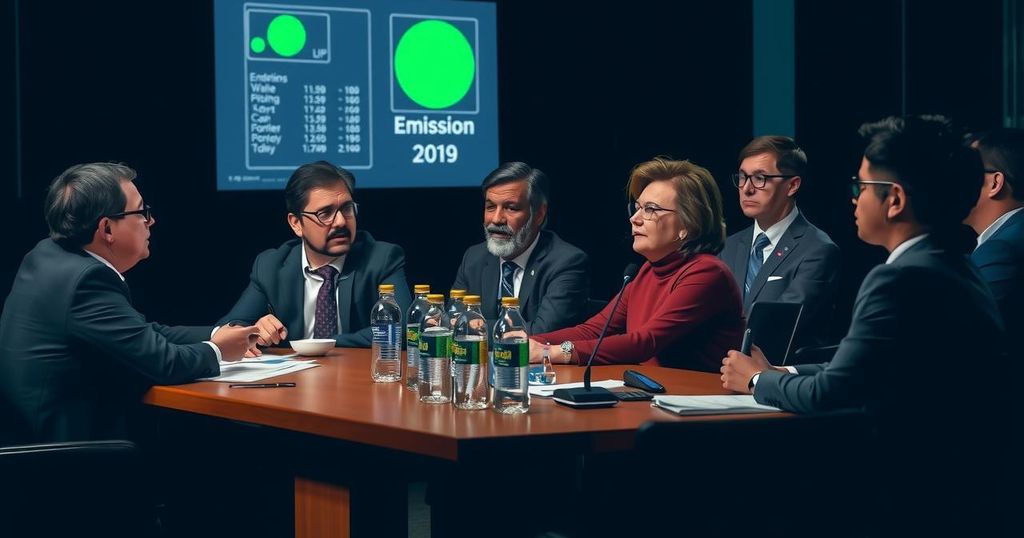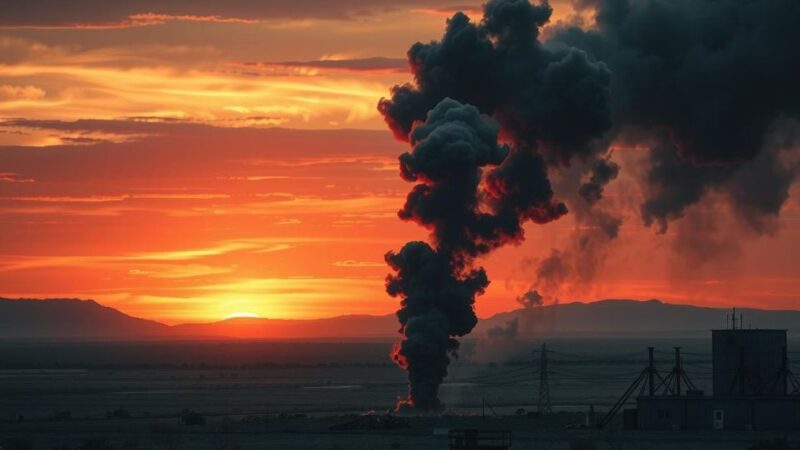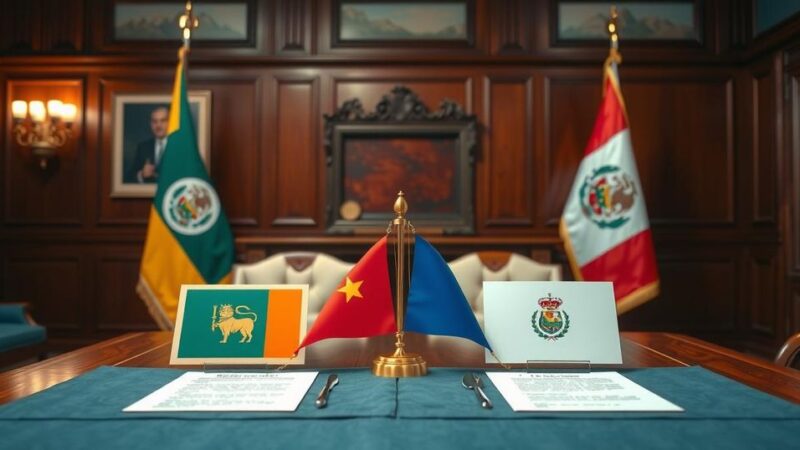At COP29 in Azerbaijan, global leaders shared conflicting views on climate action, facing urgency due to rising CO2 emissions. A report indicates net-zero must be reached by the late 2030s. Disagreements on fossil fuel reliance and financial commitments continue, particularly as developing countries push for significant aid from wealthy nations, highlighting global climate finance disparities.
At the recent COP29 climate talks in Azerbaijan, global leaders expressed divergent perspectives on combating climate change as a new report highlighted the urgency of achieving carbon neutrality sooner than previously anticipated. Preliminary findings from the Global Carbon Project indicate that carbon dioxide emissions from fossil fuels reached unprecedented levels this year, underscoring the pressing need for immediate action. The report emphasizes that to adhere to the Paris Agreement’s goal of limiting global warming to 1.5 degrees Celsius, net-zero CO2 emissions must be reached by the late 2030s rather than the previously set target of 2050. Yalchin Rafiyev, Azerbaijan’s chief negotiator, underscored the urgency: “The time window is narrowing, shrinking — and we need to act urgently.” He believed that achieving a climate finance agreement would facilitate global efforts to maintain the 1.5 degrees C goal. The backdrop of these discussions included apprehensions regarding future climate commitments, notably with the impending reinstatement of Donald Trump as U.S. President, who has indicated intentions to withdraw from the Paris Agreement. A schism emerged at COP29 as some leaders defended fossil fuel reliance, while others, particularly from vulnerable regions, highlighted the time-sensitive nature of climate action. Notably, Albanian Prime Minister Edi Rama criticized the empty rhetoric surrounding climate change, articulating that “our speeches full of good words about climate change, change nothing.” In contrast, Italian Prime Minister Giorgia Meloni articulated a perspective prioritizing the sustainability of production and society, cautioning against an overly ideological approach to decarbonization: “Currently, there is no single alternative to fossil fuel supply.” Simultaneously, leaders from countries at risk from climate change, such as Prime Minister Teo of Tuvalu, stressed the need for rapid fossil fuel phase-out. On the financial front, ongoing negotiations yielded a draft deal proposing mechanisms for mobilizing climate funds, but significant disagreements persist regarding commitments from wealthier nations. Developing countries are advocating for a yearly pledge of at least $1.3 trillion to tackle climate change, a figure exceedingly higher than current contributions of $100 billion. There is growing skepticism about relying on private sector financing, with critics labeling it as unrealistic: “They always like to look at the private sector as the magic money tree,” stated Debbie Hillier from Mercy Corps. The prime minister of the Bahamas raised concerns regarding the disparity in financial responses to global crises versus climate change, asserting the need for grants rather than loans to support small island nations vulnerable to climate impacts.
The COP29 climate talks serve as a critical platform for global leaders to collaborate on strategies to confront climate change and mobilize financial resources for adaptation and transition to cleaner energy. Recent reports reveal alarming trends in CO2 emissions, necessitating urgent action to meet global climate commitments. Disagreement among nations on approaches to fossil fuel reliance and financial responsibilities further complicates the path towards a cooperative climate agenda. Vulnerable nations are increasingly vocal about the necessity for equitable financial support in the face of accelerating climate crises, driving efforts to reform international climate finance systems.
The recent COP29 climate talks revealed a deep division among global leaders regarding strategies to combat climate change, with increasing urgency highlighted by new research on rising carbon emissions. While some leaders advocated for continued fossil fuel use, those from vulnerable regions implored for immediate action to phase out emissions. The negotiations around climate finance remain unresolved, with significant disparities between the financial needs of developing nations and the commitments proposed by wealthier countries. Failure to bridge these gaps could jeopardize international efforts to address the climate crisis effectively.
Original Source: www.rfi.fr






